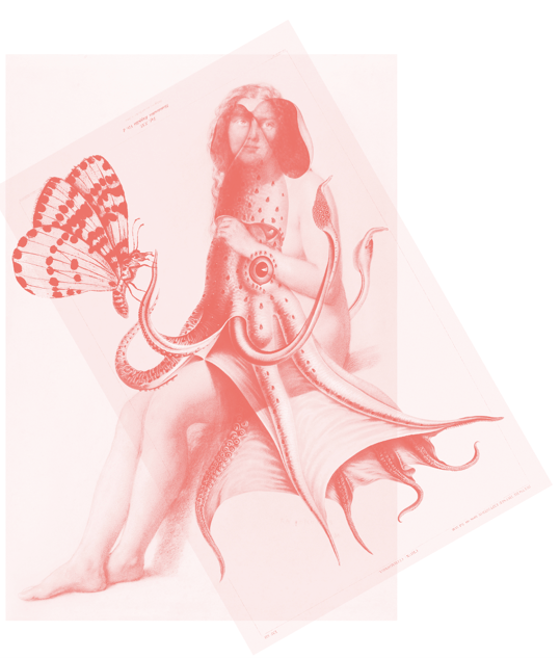Journal
Articles

Seeing the bigger picture
Effective storytelling in short word limits is not just about running the red pen through extraneous adjectives, either. It demands creative problem-solving, like seeking out useful synonyms, rephrasing and reconsidering the core message. The more reading one does of well-structured short fiction, the more naturally one can recall the solutions others have deployed.

Being and becoming predictable
The argument that the internet and social media have fundamentally homogenised cultural taste is well-worn, but is the implication – that taste was more varied before the internet – actually true? Has the in/out sorting mechanism intrinsic to algorithms eliminated the possibility of individual style and taste?

Captain Planet sucks
I hear the sceptics pointing out that we have now had six (yes, six) Terminator films warning us of the risks of evil, fighty robots – and yet here we are, merrily cracking on with more and more advanced AI.

Weird feelings
Engineering is all about taking a complex thing, breaking it down into its smallest parts, then working out the connections or sequencing between the parts. Cartoons are kind of the same. I like trying to apply a sense of logic to an emotion or feeling.

Getting attached
I’ll never forget the thrill of reading Philip Larkin’s 1971 poem ‘This Be the Verse’ for the first time. I must have been about twelve – the ideal age to encounter Larkin’s deliciously forthright (and famous) opening line. You know the one: ‘They fuck you up, your mum and dad.’

Psychobabble
Much of my life has been spent in search of frameworks to help me understand the trauma that was transacted in my upbringing, and the cataclysmic emotional and relational changes wrought. Moving between the psychological illiteracy of the world I was raised in and the fluency of our current era feels like time travel.

The octopus within
I’ve now watched quite a few doctors sketch my thyroid on office pads, something they all seem to love to do, relishing that butterfly shape, the two spreading wings. They do shade-hatching on the left or right lobe, colour in a dark circle to represent the tumour and draw four little dots for the parathyroid glands. I have started to look forward to this moment when a medical specialist transforms suddenly into an artist, taking pride in their drawing, picking up a special pen with a thin black nib, concentrating on making this invisible organ real to me. They are maybe unaware that through their own idiosyncratic drawing styles, they become instantly more interesting as people. They hand over the piece of paper and explain the next steps, and I take their drawings home, magnet them to the fridge beside the more exuberant pictures done by my kids, start making the necessary calls, and turn up on time to the next appointment, curious as a child in kindergarten.
Which is how I first learnt that there is an octopus within.

The whole truth
Acting methods...have remarkable similarities to spiritual cults. They have leaders, dogmas, even seminal texts. They have supervised rites and orthodox practices. They have stages of enlightenment, and trained leaders who will inform you whether you’ve reached such heights (and you usually haven’t, unless you’re sleeping with the leader in question).

Bringing up Baby
My husband, the softer touch with Baby, couldn’t get the leash on him so I took over. I had a handful of food to placate Baby, and he seemed to relax as I held it slightly away from his snout and went to attach the leash with my other hand. But when Baby realised what was happening, he went stiff, then bit my hands eight times like he wanted to kill me.

Black love matters
Love in Beloved is joyous, exuberant, heart-stabbingly painful, dark and deadly, full of grace and, above all, expansive and generous. There are many ways to love. Uncomfortably for the reader, Morrison insists that even some acts that look and sound like abuse could also be the malformed manifestations of love by the unloved.

Against the grain
At sixteen, I interviewed Billie Joe Armstrong, the frontman for Green Day. It was a Tuesday and I should have been at school. That morning, my mum dropped me off at the front gate. I snuck out the back, navigated the train schedule to reach the city, and found out what time the band would arrive for sound check at Festival Hall for that night’s show. Green Day had recently played a significant role in bringing punk into the mainstream. At the time, they weren’t doing press because they had a mistrust of the media – but, armed with my zine and my determination, I approached Billie Joe. He loved that I made a punk zine and agreed to a quick chat.
When the news spread through the grapevine at school, my peers were in disbelief – interviewing famous musicians was an unimaginable feat to them. Suddenly, I went from being ‘the weird girl’ to proudly wearing the badge of ‘punk girl’. Interviewing was exciting; it gave me a sense of purpose and boosted my self-esteem.
I graduated in 1996, becoming the first in my family to complete senior year. Making zines paved the way for a career in writing for music and entertainment magazines.

Origin stories
I CAN MAP your life by what was lost. History (personal and other). Culture. Language. Identity. Home, and all the references to you that it could have held. The very idea of home. The streets you would have walked down, streets that know the history of your family, of those who came before you. The chance to be the version of yourself who grew up with your biological family. The stories that should have been your birthright.